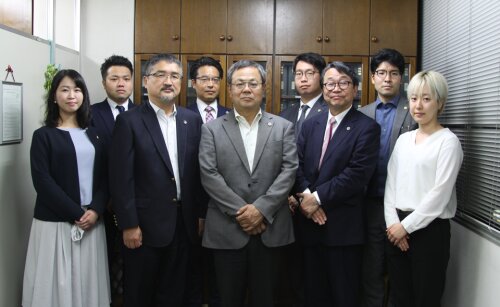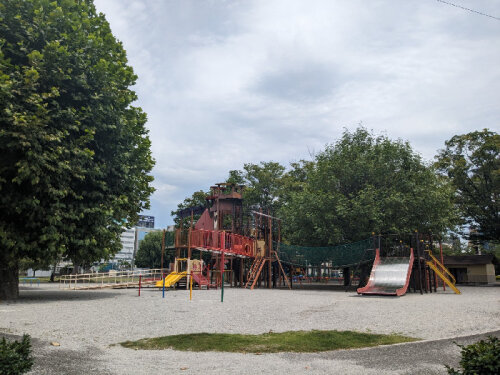Best Lawsuits & Disputes Lawyers in Shizuoka
Share your needs with us, get contacted by law firms.
Free. Takes 2 min.
List of the best lawyers in Shizuoka, Japan
About Lawsuits & Disputes Law in Shizuoka, Japan
This guide provides a practical introduction to civil lawsuits and disputes in Shizuoka Prefecture, Japan. Civil disputes cover contract disagreements, property and landlord-tenant issues, employment and labor disputes, consumer complaints, personal injury and tort claims, inheritance disputes, and business conflicts. In Japan, courts and official dispute-resolution bodies emphasize negotiated settlement and mediation alongside formal litigation. For matters in Shizuoka, the District Court and summary courts handle most civil cases, while local bar associations and public legal services provide consultations and referrals.
Why You May Need a Lawyer
Hiring a lawyer helps protect your legal rights and improves chances of obtaining a fair outcome. Common situations where people need legal help in lawsuits and disputes include:
- Contract breaches where monetary compensation or specific performance is sought.
- Eviction, rent disputes, or landlord-tenant conflicts that may lead to court action.
- Employment disputes, such as wrongful dismissal, unpaid wages, or harassment cases.
- Personal injury claims arising from accidents or negligence.
- Consumer disputes with businesses over defective goods, misleading contracts, or unfair practices.
- Debt collection, enforcement of judgments, or disputes with creditors.
- Inheritance or family property disputes requiring interpretation of wills or succession law.
- Complex commercial disputes where evidence gathering, expert testimony, or cross-border issues apply.
Lawyers help with case assessment, strategy, negotiation, drafting demand notices and settlement agreements, court representation, evidence collection, and enforcement of judgments.
Local Laws Overview
Key legal frameworks and local features relevant to lawsuits and disputes in Shizuoka include:
- National laws: Civil Code, Code of Civil Procedure, Commercial Code and consumer protection statutes form the legal backbone for civil disputes throughout Japan. These laws determine rights, procedural steps, and remedies available in court.
- Court structure: Civil cases typically start at the district court level. Summary courts handle small-value disputes and simplified procedures. The courts encourage settlement via mediation and conciliation before a full trial when possible.
- Emphasis on settlement: Japanese courts and administrative dispute-resolution bodies place strong emphasis on mediation and negotiated settlement. Court-annexed mediation and private mediation are commonly used to resolve disputes more quickly and with lower costs than full trials.
- Enforcement: Obtaining a judgment is one step - enforcement of monetary judgments or property seizure is governed by civil execution rules. Local enforcement procedures are handled by the court and its enforcement offices.
- Alternative dispute resolution: Arbitration and private mediation are available and sometimes preferred in commercial disputes. Arbitration agreements are enforceable if properly drafted.
- Local administrative bodies: Consumer protection offices, labor bureaus and municipal offices in Shizuoka can assist with specific types of disputes, offer guidance and in some cases help mediate before litigation starts.
Frequently Asked Questions
How do I start a civil lawsuit in Shizuoka?
Begin by consulting a lawyer for case assessment. Many disputes start with a demand letter or negotiation. If settlement fails, the lawyer will prepare and file a complaint at the appropriate court - typically a district court or summary court depending on the case type and claim amount. The court will set procedural steps for service, response and hearings.
How long does a typical lawsuit take?
Duration varies widely. Simple cases or cases resolved by mediation can conclude in months. More complex cases with multiple hearings, expert evidence or appeals can take one to several years. Timing depends on case complexity, the parties' willingness to settle, court schedules and whether appeals or enforcement are needed.
What costs should I expect for litigation?
Common costs include court filing fees, lawyer fees, costs for document preparation, expert reports, translation or interpreter costs if needed, and enforcement expenses. Lawyers often charge a combination of an initial retainer and a success fee. Legal expenses vary by case complexity. If funds are limited, legal aid programs may be available for eligible applicants.
Can I use mediation or arbitration instead of going to court?
Yes. Mediation and arbitration are commonly used in Japan. Court-annexed mediation or private mediation can be faster and less expensive than trial. Arbitration provides a binding decision outside court and is often used in commercial disputes when parties have an arbitration agreement. A lawyer can advise whether ADR is suitable for your case and help negotiate ADR procedures.
What evidence is important in a civil dispute?
Key evidence includes contracts, invoices, receipts, written communications such as emails and messages, photographs, witness statements and any expert reports. Maintaining clear records and timelines helps build your claim or defense. A lawyer will guide you on preserving and presenting evidence that meets Japanese procedural rules.
How do I enforce a judgment in Shizuoka?
After obtaining a judgment, enforcement procedures may include seizure of bank accounts, wage garnishment or seizure and sale of movable or immovable property. Enforcement is handled through the court enforcement office. If the losing party has insufficient assets, enforcement may be difficult and alternative solutions or negotiations may be necessary.
Can foreign residents or companies bring cases in Japan?
Yes. Foreign individuals and companies can sue or be sued in Japanese courts. Procedural rules apply equally, though language, service of process and evidence from abroad can add complexity. Non-Japanese parties should seek legal counsel experienced with cross-border issues and, if needed, arrange interpreters or translated documents.
What are statute of limitation concerns I should be aware of?
Statutes of limitation vary by claim type. Some claims must be brought within a few years from when the right was discovered, while others have longer or absolute limitation periods. Because limitation periods can bar claims if missed, seek early legal advice to confirm applicable deadlines in your case.
How do I find a qualified lawyer in Shizuoka?
Start with the local bar association for referrals, legal clinics and the public legal support center for initial consultations. Ask about the lawyer's experience in the specific type of dispute you have, their fee structure, expected timeline and language abilities if you are not fluent in Japanese. Many firms offer an initial consultation for a set fee or free short intake session.
Are there options for low-income people who need legal help?
Yes. Legal aid programs and subsidized consultations are available through public legal support centers and bar association legal aid schemes for eligible individuals. These programs may cover full or partial lawyer fees for litigation or mediation in qualifying cases. Check eligibility and apply promptly if funds are limited.
Additional Resources
For reliable help and further information in Shizuoka consider contacting these types of organizations and offices:
- The local bar association for lawyer referrals and legal clinics.
- The Japan Legal Support Center - commonly known by its Japanese name - for information about legal aid, fee assistance and consultation services.
- The local district and summary courts in Shizuoka for procedural information about filing a case and court-annexed mediation services.
- Consumer affairs offices and the prefectural consumer affairs center for consumer disputes and mediation assistance.
- Labor bureaus or labor consultation offices for employment and workplace disputes.
- Arbitration and mediation providers for private dispute-resolution services in commercial matters.
Next Steps
If you believe you have a dispute that may require legal action, follow these steps to move forward:
- Gather and organize documents: contracts, invoices, communications, receipts, photos, medical records and any other supporting materials. Create a clear timeline of events.
- Seek an early consultation: contact a lawyer or a legal consultation service to get an initial assessment of your claim or defense and possible remedies.
- Consider alternative dispute resolution: explore mediation or arbitration if you want a faster or less adversarial path to resolution.
- Understand costs and timing: discuss fees, possible court costs and realistic timelines with your lawyer before committing to litigation.
- Preserve rights and evidence: avoid taking steps that could harm your legal position, and preserve relevant documents and communications.
- Use public support if needed: apply for legal aid or consult public legal support services if you need financial assistance or basic guidance.
Taking measured steps early will improve your options and increase the chance of a favorable outcome. When in doubt, consult a qualified lawyer in Shizuoka who can advise on the specifics of your situation and guide you through local procedures.
Lawzana helps you find the best lawyers and law firms in Shizuoka through a curated and pre-screened list of qualified legal professionals. Our platform offers rankings and detailed profiles of attorneys and law firms, allowing you to compare based on practice areas, including Lawsuits & Disputes, experience, and client feedback.
Each profile includes a description of the firm's areas of practice, client reviews, team members and partners, year of establishment, spoken languages, office locations, contact information, social media presence, and any published articles or resources. Most firms on our platform speak English and are experienced in both local and international legal matters.
Get a quote from top-rated law firms in Shizuoka, Japan — quickly, securely, and without unnecessary hassle.
Disclaimer:
The information provided on this page is for general informational purposes only and does not constitute legal advice. While we strive to ensure the accuracy and relevance of the content, legal information may change over time, and interpretations of the law can vary. You should always consult with a qualified legal professional for advice specific to your situation.
We disclaim all liability for actions taken or not taken based on the content of this page. If you believe any information is incorrect or outdated, please contact us, and we will review and update it where appropriate.
Browse lawsuits & disputes law firms by service in Shizuoka, Japan
Shizuoka, Japan Attorneys in related practice areas.









